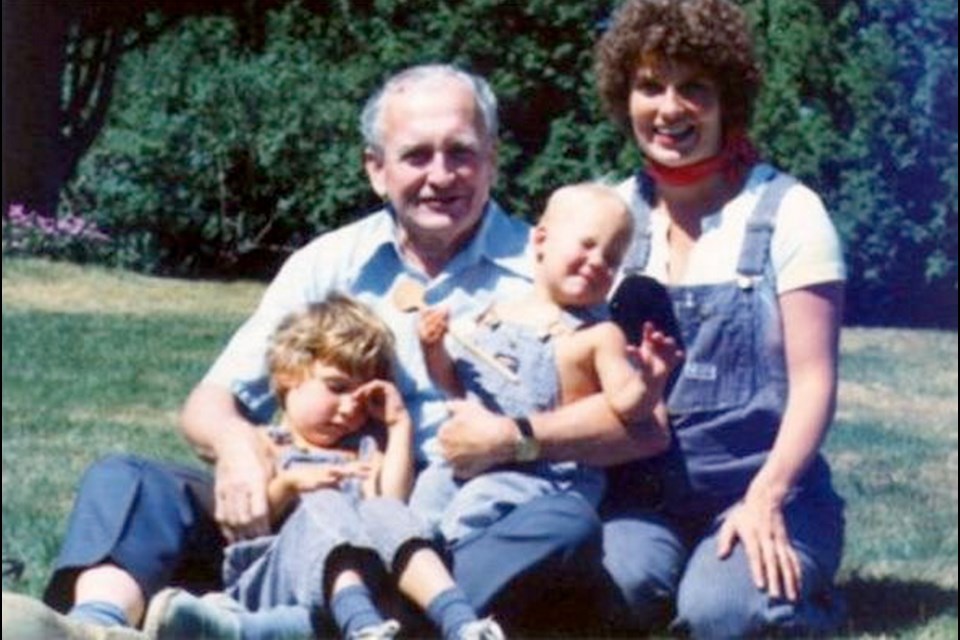The Trudeau boys adored their visits to Grandpa Jimmy Sinclair’s West Vancouver home, exploring the former federal Liberal cabinet minister’s vast garden that had spots named after Pierre Trudeau’s three sons — Justin’s Path, Sacha’s Rock, Michel’s Lookout.
In his late 20s, while teaching high school in Vancouver, Justin Trudeau would stroll over to Kitsilano Beach to play volleyball, find a game of ultimate frisbee, or just go for a walk and “chill” after a day in the classroom.
Those happy experiences, according to Trudeau, have played a major role in both his political style and policy leanings as he heads into his ninth month as Canada’s 23rd prime minister.
In his 2014 autobiography Common Ground, Trudeau writes that his grandfather — who served as fisheries minister for five years (1952 to ’57) in the cabinet of Prime Minister Louis St. Laurent — helped teach him the retail political skills that he would have never learned from his brilliant but shy father.
“This has been home for me for many, many years, throughout my life, and I get this place, I get how important it is to support it,” he said in an exclusive interview last week when asked about his roots and the March budget that was laden with B.C.-related pledges.
Trudeau said his time in Vancouver — he was a Whistler snowboard instructor, a UBC student and a high school teacher from 1997 to 2001 — helped make him sensitive to some of the challenges he now faces as PM.
“When I was living here friends who had little places in Kits, but (who were) looking for affordable homes, would have to go all the way out to Commercial, which now is unaffordable just like everywhere else,” he said during an interview at the Maritime Museum near Kits Beach.
“We’re having to go further and further and further (away from Vancouver) for middle class families to be able to afford something, and that’s just not right.”
Vancouver, he said, also influenced his views on the need to develop a vibrant economy while respecting nature.
Talk like this from Trudeau during the 2015 campaign helped make the Montreal MP a credible national leader while leading a party that has struggled in the West since Trudeau, 44, was a toddler running around in Jimmy Sinclair’s garden.
The record 17 seats Trudeau won in this province was thanks in part to Trudeau’s famous Grouse Mountain campaign ad, when he said he has B.C. “in the blood.”
Will his West Coast roots help him survive the fallout of a potentially costly upcoming decision on the $6.8-billion Kinder Morgan twinning of its pipeline from Edmonton to Burnaby?
The government has dropped hints that it is leaning towards a yes when cabinet decides in December, after hearing from a three-person panel tasked to hold additional public consultations.
The National Energy Board said in May that the project is in the national interest and should proceed subject to 157 conditions.
Trudeau, though he has promised to help Alberta deal with the oil price plunge and the Fort McMurray fires, wouldn’t say whether he’s prepared to burn political capital in B.C. in order to do that.
“You don’t ever hope for total 100 per cent unanimity,” was all he would acknowledge.
But a few of his MPs have been a little more explicit.
“Albertans know that the prime minister truly cares about what is taking place in Alberta,” Kevin Lamoureux, parliamentary secretary to Government House leader and Trudeau confidant Dominic LeBlanc, said in the House of Commons last week.
“This government has put a process in place to see future pipelines get done.”
University of Victoria political scientist Norman Ruff, who believes the Liberals will give Kinder Morgan the go-ahead, says there would be at least temporary political damage.
“Justin would be in danger of using up much of his Lower Mainland political credits,” Ruff said.
That said, Trudeau would have until 2019 — the date for the next federal election — to win back the public’s trust. If it gets approved, Kinder Morgan expects to start shipping oil that same year.
“That’s a long way off and with tight safeguards even the Lower Mainland electorate might become more forgiving,” Ruff said.



